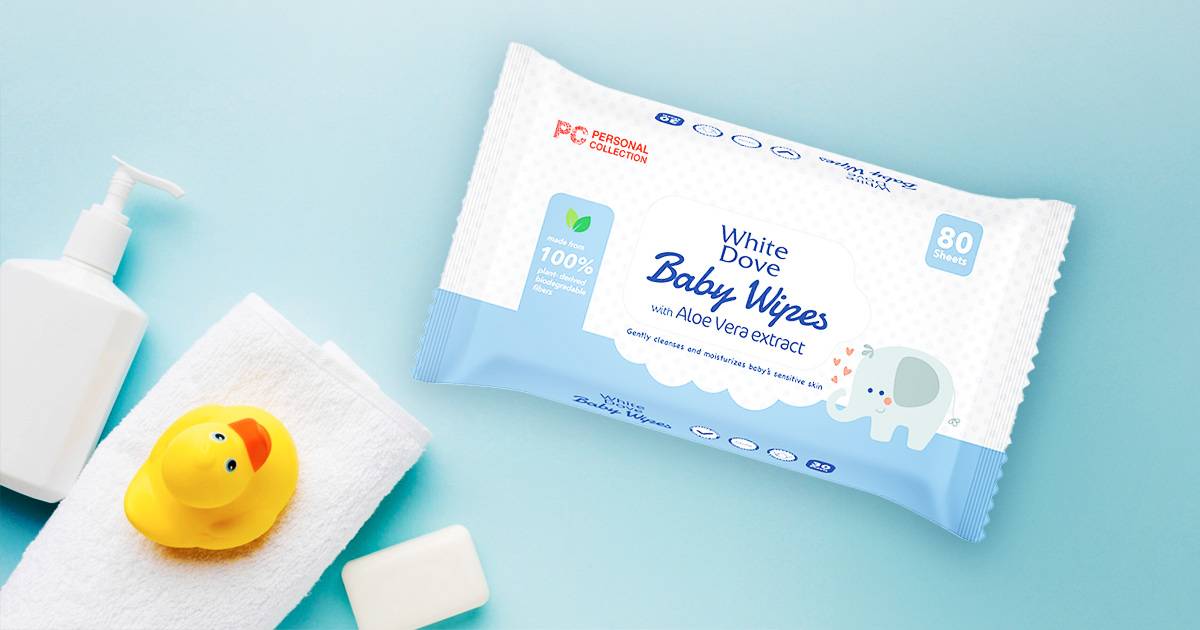Baby Wipes vs Wet Wipes: Navigating the Choices for Optimal Cleanliness

Many people are interested in the ongoing discussion between baby wipes and wet wipes when it comes to personal hygiene. Both individuals and parents are wondering what the differences are. This article aims to provide an in-depth exploration of the distinctions between baby wipes and wet wipes, shed light on their uses and ingredients, and address common queries.
Baby Wipes vs. Wet Wipes: Understanding the Basics
At the core of their existence, baby wipes and wet wipes share a common objective, offering a convenient and effective solution for personal cleanliness. But they differ in various ways, and to give you a glimpse into what baby wipes and wet wipes are:
What are Baby Wipes?
Baby wipes are disposable, moistened cloths designed for cleaning the sensitive skin of infants and young children. Made from soft materials with a mild formulation that includes gentle cleansing agents and often moisturizing ingredients like aloe vera or chamomile, these wipes are primarily used during diaper changes to clean the baby’s bottom.
They are convenient, disposable, and alcohol-free, making them suitable for various uses beyond diaper changes, such as cleaning hands and faces. The versatility and gentle nature of baby wipes contribute to their widespread use in maintaining hygiene for babies during daily care routines.
What are Wet Wipes?
Wet wipes, also known as moist towelettes, are disposable, pre-moistened cloths designed for various cleaning purposes. Unlike baby wipes, which are specifically tailored for infant care, wet wipes have a broader range of applications. These wipes come in sealed packages to maintain moisture and are commonly used for personal hygiene, quick clean-ups, and surface sanitization.
Wet wipes may contain a solution with cleansing agents, moisturizers, and sometimes antibacterial or disinfectant ingredients, making them suitable for different scenarios. They are convenient for on-the-go use and are available in various formulations, catering to specific needs such as makeup removal, hand sanitizing, or general cleaning. However, it’s essential to check the intended use and ingredients of wet wipes to ensure their suitability for specific tasks.
Baby Wipes vs Wet Wipes – The Comparison
Diving into the nuances that distinguish baby wipes from wet wipes will provide a clearer picture of their individual attributes.
Material and Thickness
The distinction in material and thickness between baby wipes and wet wipes plays a crucial role in their functionality. Baby wipes are carefully constructed from exceptionally soft materials, ensuring a tender touch on the sensitive skin of infants. This characteristic is vital for preventing skin irritation and discomfort during routine diaper changes. Furthermore, the greater thickness of baby wipes not only enhances their durability but also contributes to their effectiveness in thoroughly cleaning delicate areas. In contrast, while wet wipes share a soft texture, their thickness may vary based on the specific intended use, offering flexibility for a range of cleaning scenarios.
Ingredients and Formulation
One of the paramount considerations in choosing between wet wipes and baby wipes is the formulation and the presence of alcohol. Baby wipes are generally formulated to be alcohol-free, incorporating mild cleansing agents and moisturizing components. This formulation is designed to prioritize the well-being of a baby’s sensitive skin, preventing dryness and irritation. Conversely, some wet wipes include alcohol in their formulation, leveraging its antibacterial properties to make them suitable for a broader spectrum of cleaning purposes. This difference in formulation reflects the diverse applications that wet wipes cater to beyond the realm of childcare.
Intended Use
The divergent intended uses of baby wipes and wet wipes further underscore their unique characteristics. Baby wipes are used for specific tasks related to childcare, such as gentle cleaning during diaper changes and wiping tiny hands and faces. These wipes often feature skin-friendly elements like aloe vera and chamomile, emphasizing their dedication to the delicate needs of infants. In contrast, the versatile formulation of wet wipes extends their usability beyond childcare tasks. Wet wipes have become invaluable in personal hygiene routines, offering quick clean-up solutions and serving as convenient tools for surface sanitization. This adaptability makes wet wipes indispensable in various situations where a quick and effective cleaning solution is required.
Additional Queries About Wet Wipes and Baby Wipes
Here are some questions that parents will surely ask about baby wipes and wet wipes:
Can you use wet ones as baby wipes?
The question of whether wet ones can serve as a substitute for baby wipes introduces a nuanced consideration. While wet wipes may suffice for quick clean-ups, the dedicated gentleness and care provided by baby wipes may be unmatched. It’s essential to assess factors like ingredients and thickness to ensure suitability for delicate baby skin.
Do baby wipes have alcohol in them?
The inquiry into whether baby wipes contain alcohol is prevalent among parents. Reputable baby wipe brands typically formulate their products without alcohol, prioritizing skin health and avoiding dryness or irritation. Constantly scrutinize product labels for transparency and ingredient details.
Wet Wipes vs. Baby Wipes – Which one to use?
In the ongoing discourse of baby wipes vs. wet wipes, the choice hinges on intended use and personal preferences. Baby wipes emerge as tailored solutions for infant care, offering a gentle and nurturing touch. Wet wipes, with their versatility, extend their applications beyond the realm of childcare. When considering the use of wet ones as baby wipes, scrutinize the ingredients and thickness to uphold the well-being of your little one.
By navigating the nuances between baby wipes and wet wipes, individuals and parents can make informed decisions based on unique requirements. Whether venturing through the world of diaper changes or seeking convenient hygiene solutions, both baby wipes and wet wipes play pivotal roles in maintaining cleanliness and comfort.
